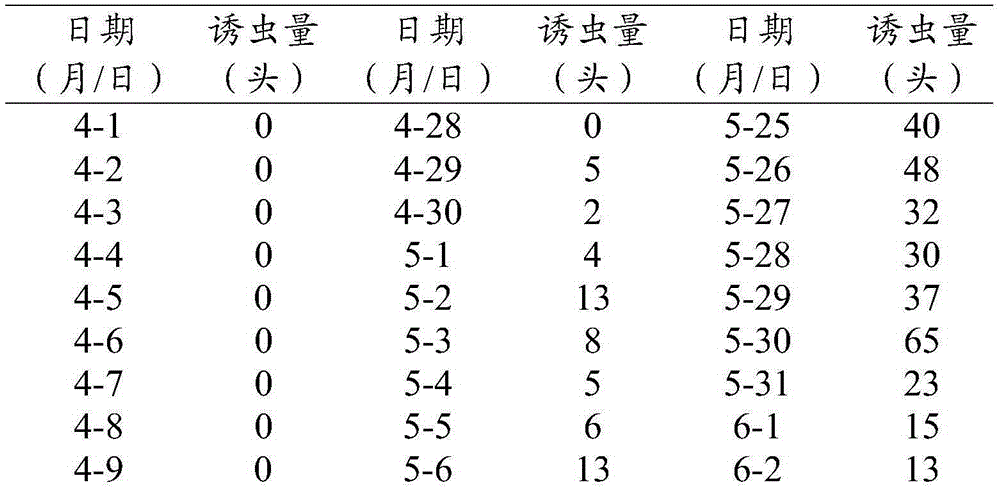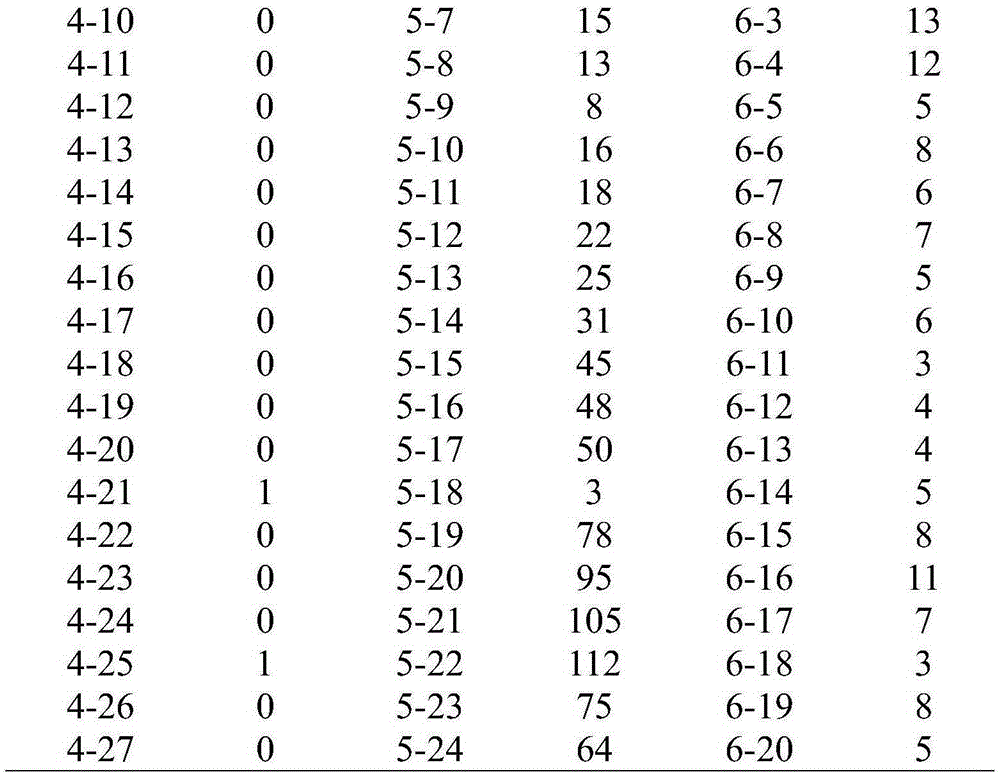Sugarcane exolontha serrulata gyllenhall control method
A technology of beetles and sugarcane, which is applied in the field of pest control, can solve the problems of unsatisfactory effect of beetles, poor killing effect, and large dosage of pesticides.
- Summary
- Abstract
- Description
- Claims
- Application Information
AI Technical Summary
Problems solved by technology
Method used
Image
Examples
Embodiment 1
[0026] A control method for sugarcane tooth edge beetles, comprising the following steps:
[0027] 1. Determine the application period.
[0028] After the sugarcane was planted, between April and June, 20W black light was used to lure the adult beetle beetle, and the date when the number of beetle adult beetle peaked was obtained. The specific data is as follows: The table below Show.
[0029] Table 1 .The number of adult beetles lured by black light
[0030]
[0031]
[0032] According to the dynamic change of the number of adults fluttering lights, the peak date is obtained from the gradual increase to the high point with a downward trend. In this embodiment, the date when the adult number of beetles reached the peak is around May 21 and May 22. Apply 7-15 days after that date, approximately between May 29 and June 5.
[0033] 2. Application method.
[0034] After determining the application period, mix imidacloprid granules with a mass percentage of 2% and fert...
Embodiment 2
[0041] A control method for sugarcane tooth edge beetles, comprising the following steps:
[0042] 1. Determine the application period.
[0043]After planting sugarcane, between April and June, use 40W black light to lure adult beetle beetles, and get the date when the number of beetle adults reaches the peak, which can be gradually increased according to the dynamic changes in the number of adults fluttering on the lamp. The downward trend results in a peak date, after which date the application is carried out 7-15 days, cf. Example 1.
[0044] 2. Application method.
[0045] After the application period is determined, the first soil cultivation is carried out at the base of the sugarcane, and the depth of the soil cultivation is 25-30cm; then the imidacloprid mass percentage content of 2% granules and fertilizers are evenly mixed, and the radius of the sugarcane base is 10 cm. In the range of -20cm, spray according to the amount of 3-5kg granules per mu, and then carry out...
Embodiment 3
[0051] A control method for sugarcane tooth edge beetles, comprising the following steps:
[0052] 1. Determine the application period.
[0053] After planting sugarcane, between April and June, use 20W black light to lure adult beetle beetles, and get the date when the number of beetle adults reaches the peak, which can be gradually increased according to the dynamic changes in the number of adults fluttering on the lamp. The downward trend results in a peak date, after which date the application is carried out 7-15 days, cf. Example 1.
[0054] 2. Application method.
[0055] After determining the application period, mix the phoxim granule with a mass percentage of 3% and the fertilizer evenly, and spread it within the radius of 10-20cm at the base of the sugarcane, according to the amount of 3-5kg granule per mu. Apply pesticides, and then carry out soil cultivation, and the depth of soil cultivation is 5-15cm. The experiment adopts random block arrangement method. The ...
PUM
 Login to View More
Login to View More Abstract
Description
Claims
Application Information
 Login to View More
Login to View More - R&D
- Intellectual Property
- Life Sciences
- Materials
- Tech Scout
- Unparalleled Data Quality
- Higher Quality Content
- 60% Fewer Hallucinations
Browse by: Latest US Patents, China's latest patents, Technical Efficacy Thesaurus, Application Domain, Technology Topic, Popular Technical Reports.
© 2025 PatSnap. All rights reserved.Legal|Privacy policy|Modern Slavery Act Transparency Statement|Sitemap|About US| Contact US: help@patsnap.com



